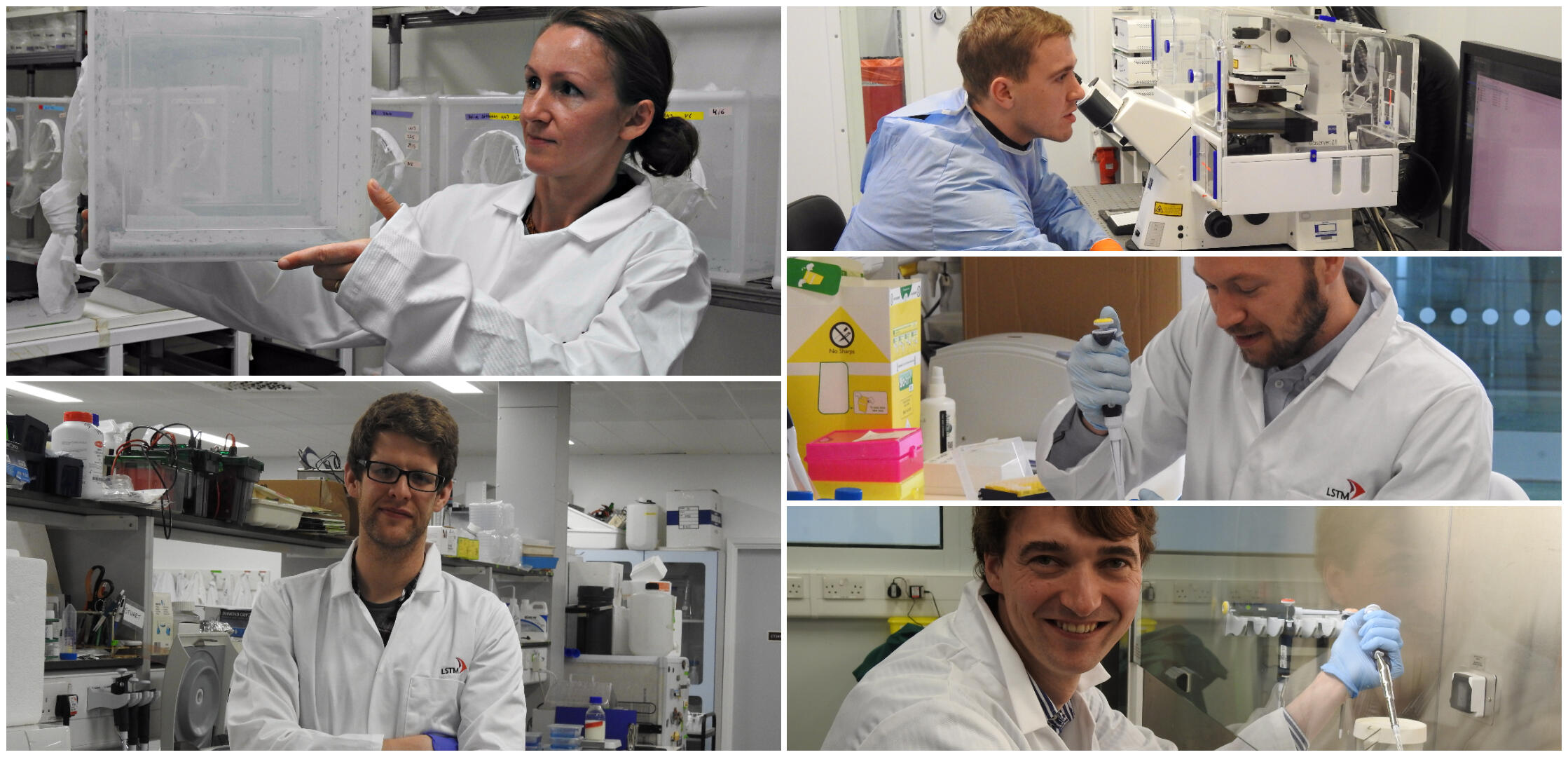
The first five recipients of a new fund to support early stage projects have been announced, and are in the process to begin their research.
LSTM’s new Director’s Catalyst Fund was launched in 2016 with funding from the LSTM’s Research Committee, the Wellcome Trust (WT) as well as philanthropic donations. It aims to offer support for new, innovative projects for early career researchers. It is hoped that these initial awards will be key in supporting early career researchers in attracting competitive external funding.
Professor Giancarlo Biagini, Chair of LSTM’s Research Committee, said: “The Director’s Catalyst Fund aims to provide early-career researchers an opportunity to develop their own research ideas in a supportive environment, allowing them to transition from postdoctoral to independent investigators, whilst addressing some of the world’s most intractable health problems.”
The Fund provides five awards of up to £50,000 each year to project relevant to LSTM research strategic priorities, and is open to all LSTM’s post-doctoral researchers. It provides a platform to test new ideas and obtain the confidence in their concept to scale up with the involvement of larger research funders.
“Our selection process is robust because we only fund the best.” Continued Professor Biagini: “We are really excited about our first cohort of awardees who will now benefit from close mentorship and an excellent research environment to support their development needs and increases their chances of success.”
This year’s recipients are:
- Shaun Pennington, who will look at a novel model to study invasive Salmonella disease and assess novel treatment strategies
- Thomas Edwards, who will look at a diagnostic tool to detect a range of AMR makers
- Simon Jochems, who will look at the role of nasal monocytes in protecting against pneumonia in children
- Jennifer Lord, who will look at improving experimental estimations of mosquito borne diseases
- Stuart Ainsworth, who will assess the use of applying snakebite-inspired treatments to tackle necrotizing bacterial infections
You can read more about the fund and the awardees here.